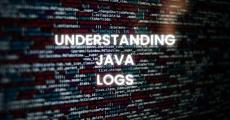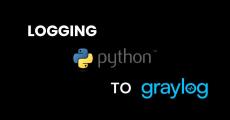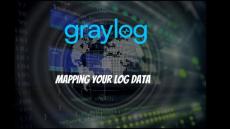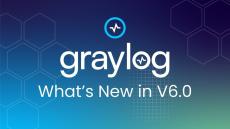Watch this video for a quick look at Graylog V6.0
https://docs.grayog.org
- November 2024 (3)
- October 2024 (8)
- September 2024 (3)
- August 2024 (1)
- June 2024 (1)
- May 2024 (6)
- April 2024 (1)
- March 2024 (7)
- February 2024 (3)
- January 2024 (6)
- December 2023 (4)
- November 2023 (4)
- October 2023 (2)
- September 2023 (2)
- August 2023 (2)
- July 2023 (2)
- June 2023 (2)
- May 2023 (5)
- April 2023 (1)
- March 2023 (2)
- February 2023 (6)
- January 2023 (5)
- December 2022 (8)
- November 2022 (4)
- October 2022 (1)
- August 2022 (1)
- June 2022 (1)
- May 2022 (5)
- April 2022 (6)
- March 2022 (11)
- February 2022 (1)
- January 2022 (4)
- December 2021 (3)
- November 2021 (2)
- October 2021 (4)
- September 2021 (6)
- August 2021 (6)
- July 2021 (3)
- June 2021 (7)
- May 2021 (3)
- April 2021 (6)
- March 2021 (3)
- January 2021 (4)
- December 2020 (2)
- October 2020 (4)
- September 2020 (2)
- July 2020 (3)
- June 2020 (2)
- May 2020 (5)
- April 2020 (1)
- March 2020 (1)
- February 2020 (4)
- January 2020 (6)
- December 2019 (7)
- November 2019 (6)
- October 2019 (6)
- September 2019 (7)
- August 2019 (4)
- July 2019 (6)
- June 2019 (5)
- May 2019 (2)
- April 2019 (2)
- March 2019 (7)
- February 2019 (3)
- January 2019 (13)
- December 2018 (8)
- November 2018 (8)
- July 2018 (2)
- June 2018 (4)
- May 2018 (4)
- March 2018 (2)
- February 2018 (1)
- September 2017 (1)
- August 2017 (1)
- March 2017 (1)
- December 2016 (1)
Graylog is a leading centralized log management solution built to open standards for capturing, storing, and enabling real-time analysis of terabytes of machine data. We deliver a better user experience by making analysis ridiculously fast and efficient using a more cost-effective and flexible architecture. Thousands of IT professionals rely on Graylog's scalability, comprehensive access to complete data, and exceptional user experience to solve security, compliance, operational, and DevOps issues every day.
Purpose-built for modern log analytics, Graylog removes complexity from data exploration, compliance audits, and threat hunting so you can find meaning in data more easily and take action faster.






















